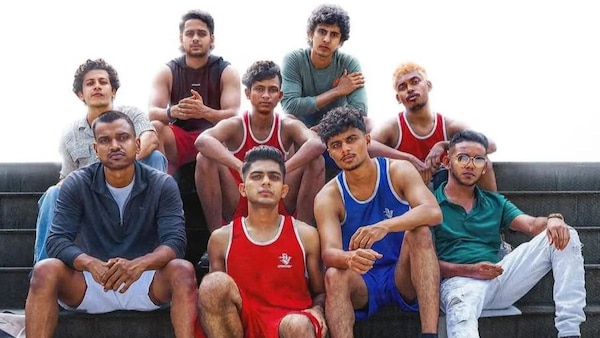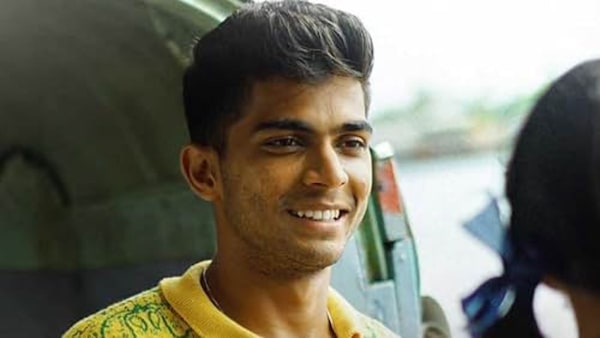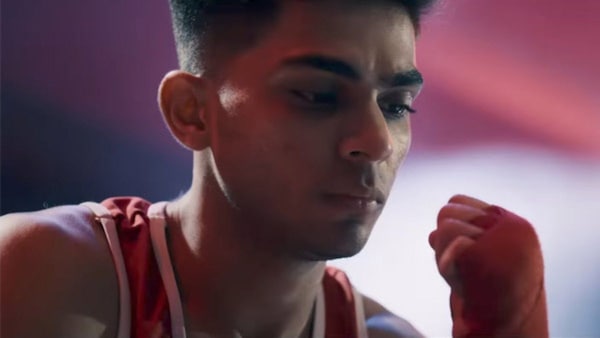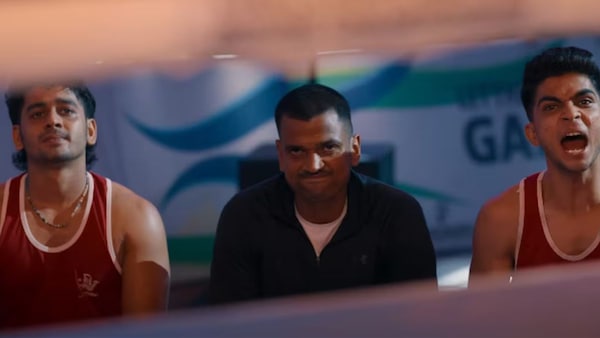Alappuzha Gymkhana Is A Crisis Of Misplaced Confidence
Khalid Rahman’s film operates in that peculiar age where nothing appears serious, everything is bound in levity, and life is what one makes of it.

Last Updated: 10.23 AM, Apr 12, 2025
THEY SAY ALL YOU NEED IS LOVE, but sometimes misplaced confidence can go a long way. It is a gift. It might come across as awkward or arrogant or both. It might make one look like an asshole or, worse, foolish. Sometimes the audacity is rewarding, and the reckless abandon can often lead to a hard fall. The very definition of misplaced is such that one cannot predict its outcome or reception. But it is indeed a gift, and goes a long way. It reveals that there was an attempt. That someone took a shot. That no matter what Yoda says, there is always a try. One didn’t simply walk away quietly. One refused submission.
Four boys huddle together next to lush fields of Alleppey and check their exam results. They expect to fail, but it is fine; they pour some toddy into a glass and vow to take it in their stead and party no matter what the results spit out. This is how Khalid Rahman’s Alappuzha Gymkhana begins. Right away, we meet these boys who have a preternatural ability to conjure confidence and hope. There is no reason or logic behind it, there is no way in this universe that their life in the immediate future is not screwed but they summon the kind of courage that is possible only during blinkered teenage years. Jojo Johnson (Naslen) does most of the talking. He is the kind who talks his way through jitters and doubts. He and his friends choose boxing and sports quota as a shortcut to college admission. When he tells his mother about the district-level competition coming up, she does something worse than waving it away. Jojo becomes comically livid. In a serious tone, he calls her pathetic and says that she should encourage when good things happen. Rahman’s writing and staging combine with Naslen’s straight-faced sarcasm to produce a moment both melancholic and joyful. He wants his mother to partake in his and his friends’ well of confidence, but unfortunately, she is too worldly wise for that.

In the first half of Alappuzha Gymkhana, we stay mostly with Jojo as he stumbles and fumbles his way towards the state-level competitions. We get him in bits and pieces, he is someone who takes life one day at a time. He has a girlfriend, but he flirts with a school junior on the boat. His flirtatious ways float along the backwaters with the ease of gradually flowing water, and when his feet touch solid ground as he gets off the boat, he is back with his girlfriend. He can approach girls with that same charming serenity that betrays only innocent intentions, and he does approach girls even at the boxing school. If he falls flat on his face, be it in the ring or in front of women, he possesses a support system that doesn’t let his heart slip through the cracks. Khalid Rahman’s film operates in that peculiar age where nothing appears serious, everything is bound in levity, and life is what one makes of it. This is an age that’s probably a decade before Rahman’s earlier film Thallumaala, which brings disproportionate equations of masculinity and pride into the picture. Here, Jojo and his mates are not that serious yet and neither do they possess the faculties to operate at that level.

Alappuzha Gymkhana is not a boxing film. Khalid Rahman doesn’t even get into the technicalities of a punch or footwork. His camera doesn’t follow boxing’s choreographic patterns. They glide along a medium shot of the ring or quickly cut between a first-person view to a hip-level shot inside the ring. The music by Vishnu Vijay and editing by late Nishadh Yusuf dial up the energy. The shots are all dynamic, they never rest much like the audience and team members on the sidelines, there isn’t a moment to take the impact of a hit or a knockout. The punches land softly except when Rahman ups the frame rate to show skin almost flaying. But it is never violent, there isn’t an ounce of blood. Only puke and bruised hearts that heal extremely quickly. Even the coach, Antony Joshua, played by Lukman Avaran, has very few things to tell this Alappuzha team (it is the fellow boxers that motivate one another); he is a man with his own issues inside and outside the ring. Rahman doesn’t give away much, he just lets scenes play out for us to piece together these characters and how and why they come as one.

Alappuzha Gymkhana is not the film for that one great pep talk or one last fight to win it all. This is a film where even the coach is in such a bad place that he picks up a fight outside the ring. Khalid Rahman stages this free-for-all with panache, a fight that begins in a field, moves to a cul-de-sac and spills over to the road. It is a film about the comfortable crisis of misplaced confidence, which becomes the bedrock for solidarity. There is simply no place for cynicism, and no one is in a hurry to grow up.

 Premium
Premium